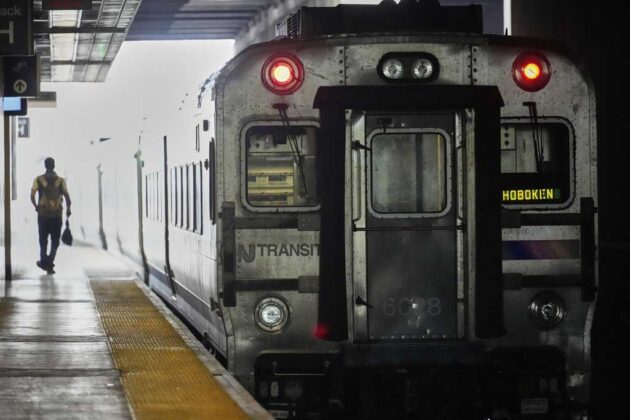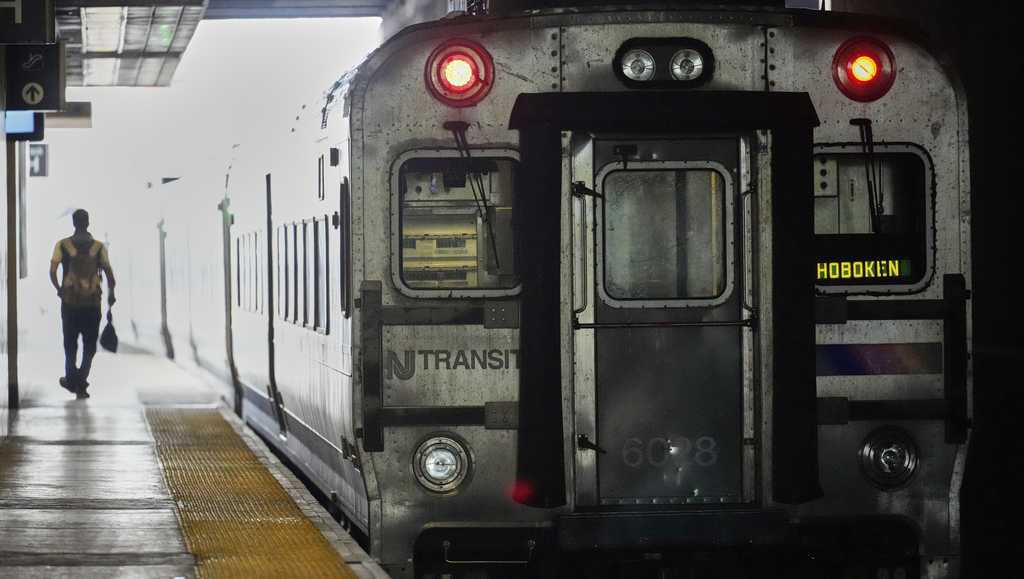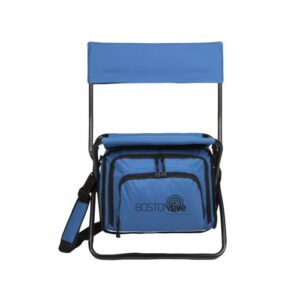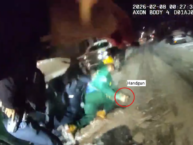
New Jersey rail strike could cause nightmare for commuters

New Jersey Transit train engineers will go on strike early Friday, leaving an estimated 350,000 commuters in New Jersey and New York City to seek other means to reach their destinations or consider staying home.The walkout comes after the latest round of negotiations on Thursday didn’t produce an agreement. It will be the state’s first transit strike in more than 40 years and comes a month after union members overwhelmingly rejected a labor agreement with management.“We presented them the last proposal, they rejected it and walked away with two hours left on the clock,” said Tom Haas, general chairman of the Brotherhood of Locomotive Engineers and Trainmen.New Jersey Gov. Phil Murphy said during a news conference late Thursday that it was important to “reach a final deal that is both fair to employees and at the same time affordable to New Jersey’s commuters and taxpayers.””Again, we cannot ignore the agency’s fiscal realities,” Murphy said.NJ Transit — the nation’s third-largest transit system — operates buses and rail in the state, providing nearly 1 million weekday trips, including into New York City. The walkout will halt all NJ Transit commuter trains, which provide heavily used public transit routes between New York City’s Penn Station on one side of the Hudson River and communities in northern New Jersey on the other, as well as the Newark airport, which has grappled with unrelated delays of its own recently.Strike contingency plansThe agency had announced contingency plans in recent days, saying it planned to increase bus service, but warned riders that the buses would only add “very limited” capacity to existing New York commuter bus routes in close proximity to rail stations and would not start running until Monday. The agency also will contract with private carriers to operate bus service from key regional park-and-ride locations during weekday peak periods.However, the agency noted that the buses would not be able to handle close to the same number of passengers — only about 20% of current rail customers — so it urged people who could work from home to do so if there was a strike.Even the threat of it had already caused travel disruptions. Amid the uncertainty, the transit agency canceled train and bus service for Shakira concerts Thursday and Friday at MetLife Stadium in New Jersey.The parties had met Monday with a federal mediation board in Washington to discuss the matter, and a mediator was present during Thursday’s talks.Wages have been the main sticking point of the negotiations between the agency and the Brotherhood of Locomotive Engineers and Trainmen. The union says its members earn an average salary of $113,000 a year and says an agreement could be reached if agency CEO Kris Kolluri agrees to an average yearly salary of $170,000.NJ Transit leadership, though, disputes the union’s data, saying the engineers have average total earnings of $135,000 annually, with the highest earners exceeding $200,000. Commuter options if there is a strikeIf a walkout does occur, NJ Transit has said the chartered buses will run from four satellite lots across the state to the Port Authority Bus Terminal in Manhattan or to PATH train stations in north Jersey, starting Monday. The PATH system is operated by a subsidiary of the Port Authority of New York and New Jersey and its services would not be affected by the potential strike.As many as 1,000 passengers are on a full train each day, and roughly 70,000 commuters take the trains each day. NJ Transit says each chartered bus could carry only about 100 passengers, and no buses would run on the first day of a potential strike.Officials expect some train customers will switch to existing NJ Transit bus routes or use the chartered carriers. Others may choose to drive into New York City, where they would have to pay congestion pricing fees.
New Jersey Transit train engineers will go on strike early Friday, leaving an estimated 350,000 commuters in New Jersey and New York City to seek other means to reach their destinations or consider staying home.
The walkout comes after the latest round of negotiations on Thursday didn’t produce an agreement. It will be the state’s first transit strike in more than 40 years and comes a month after union members overwhelmingly rejected a labor agreement with management.
Advertisement
“We presented them the last proposal, they rejected it and walked away with two hours left on the clock,” said Tom Haas, general chairman of the Brotherhood of Locomotive Engineers and Trainmen.
New Jersey Gov. Phil Murphy said during a news conference late Thursday that it was important to “reach a final deal that is both fair to employees and at the same time affordable to New Jersey’s commuters and taxpayers.”
“Again, we cannot ignore the agency’s fiscal realities,” Murphy said.
NJ Transit — the nation’s third-largest transit system — operates buses and rail in the state, providing nearly 1 million weekday trips, including into New York City. The walkout will halt all NJ Transit commuter trains, which provide heavily used public transit routes between New York City’s Penn Station on one side of the Hudson River and communities in northern New Jersey on the other, as well as the Newark airport, which has grappled with unrelated delays of its own recently.
Strike contingency plans
The agency had announced contingency plans in recent days, saying it planned to increase bus service, but warned riders that the buses would only add “very limited” capacity to existing New York commuter bus routes in close proximity to rail stations and would not start running until Monday. The agency also will contract with private carriers to operate bus service from key regional park-and-ride locations during weekday peak periods.
However, the agency noted that the buses would not be able to handle close to the same number of passengers — only about 20% of current rail customers — so it urged people who could work from home to do so if there was a strike.
Even the threat of it had already caused travel disruptions. Amid the uncertainty, the transit agency canceled train and bus service for Shakira concerts Thursday and Friday at MetLife Stadium in New Jersey.
The parties had met Monday with a federal mediation board in Washington to discuss the matter, and a mediator was present during Thursday’s talks.
Wages have been the main sticking point of the negotiations between the agency and the Brotherhood of Locomotive Engineers and Trainmen. The union says its members earn an average salary of $113,000 a year and says an agreement could be reached if agency CEO Kris Kolluri agrees to an average yearly salary of $170,000.
NJ Transit leadership, though, disputes the union’s data, saying the engineers have average total earnings of $135,000 annually, with the highest earners exceeding $200,000.
Commuter options if there is a strike
If a walkout does occur, NJ Transit has said the chartered buses will run from four satellite lots across the state to the Port Authority Bus Terminal in Manhattan or to PATH train stations in north Jersey, starting Monday. The PATH system is operated by a subsidiary of the Port Authority of New York and New Jersey and its services would not be affected by the potential strike.
As many as 1,000 passengers are on a full train each day, and roughly 70,000 commuters take the trains each day. NJ Transit says each chartered bus could carry only about 100 passengers, and no buses would run on the first day of a potential strike.
Officials expect some train customers will switch to existing NJ Transit bus routes or use the chartered carriers. Others may choose to drive into New York City, where they would have to pay congestion pricing fees.
 BostonLive Folding Chair 2
BostonLive Folding Chair 2 



